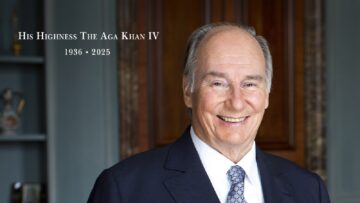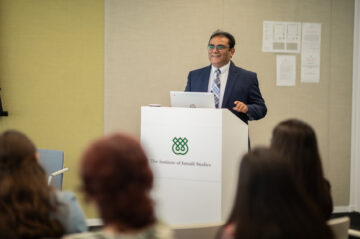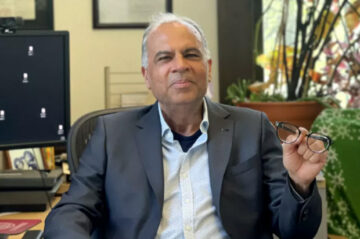Professor Aziz knew eight languages and was a prolific writer. His books include:
- The Making of Pakistan: A Study in Nationalism;
- Studies in History and Politics, Party Politics in Pakistan 1947-1958;
- Britain and Pakistan;
- Ameer Ali: His Life and Work;
- Rahmat Ali: A Biography;
- A History of the Idea of Pakistan (4 volumes);
- Britain and Muslim India;
- Muslims under Congress Rule 1937-1939: A Documentary Record;
- British Imperialism in India;
- The All India Muslim Conference 1928-1935: A Documentary Record;
- The Meaning of Islamic Art: An Annotated Bibliography;
- The Meaning of Islamic Art, Explorations in Religious Symbolism and Social Relevance.
In a work entitled The Murder of History, he took a critical look at the state of historical scholarship in Pakistan.
His two-volume study entitled Aga Khan III: Selected Speeches and Writings of Sir Sultan Muhammad Shah, 1902 – 1955 was published by Kegan Paul International of London in 1998. Dr. Karim Janmohamed, former Head of the IIS-ITREB Liaison (now Community Relations) Department at the IIS, who collaborated with him for some years in the preparation of the study, recalls the author’s meticulous scholarship, a commitment to the highest academic standards and a fluent writing style which are reflected in the 200-page Introduction to the book and the copious annotations to the 229 speeches, writings and interviews that were selected for publication. “I also cherish fond memories of his personal warmth and friendship which he always accorded me”, says Dr Janmohamed.
An article by the late K.K. Aziz, entitled “Aga Khan III: A Study in Humanism”, is available on the IIS Website in the section on Lifelong Learning. He is survived by his wife, Zarina, who made it a labour of love to assist him in the preparation of his numerous books.






